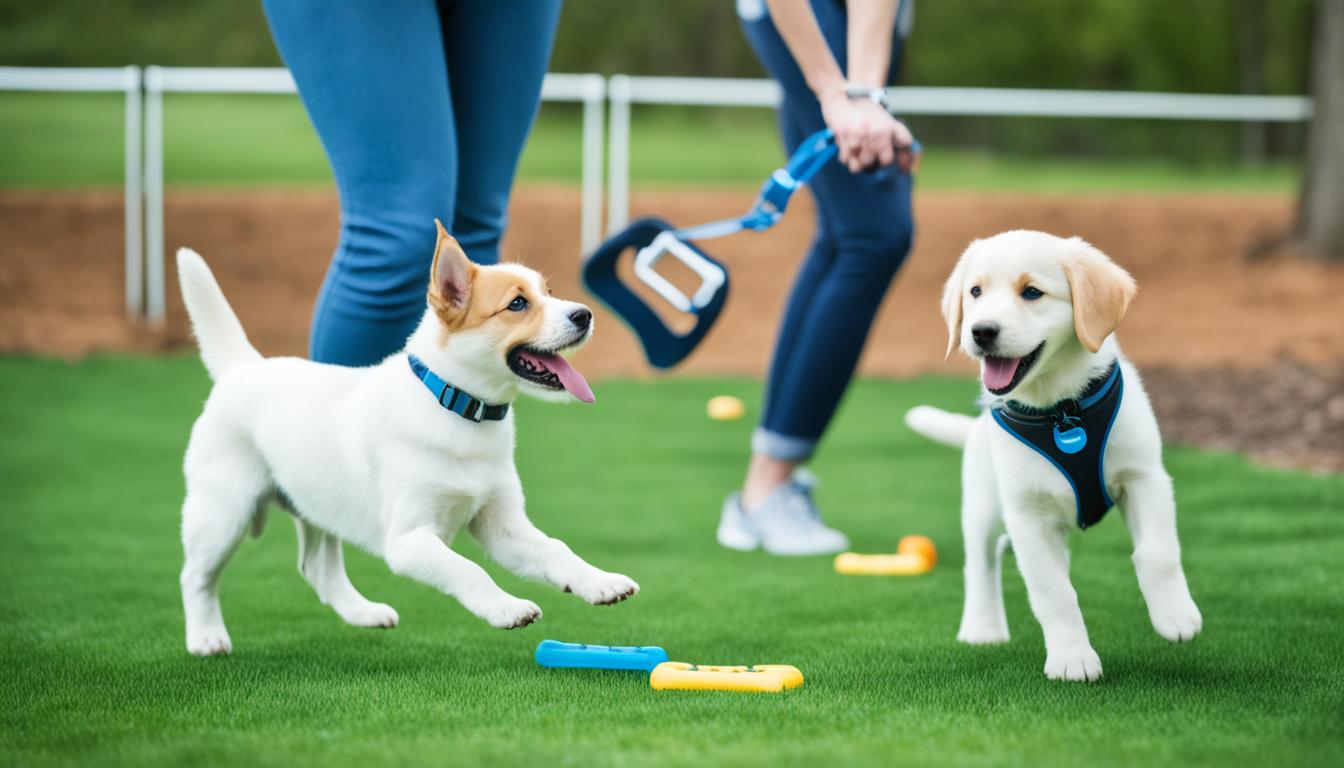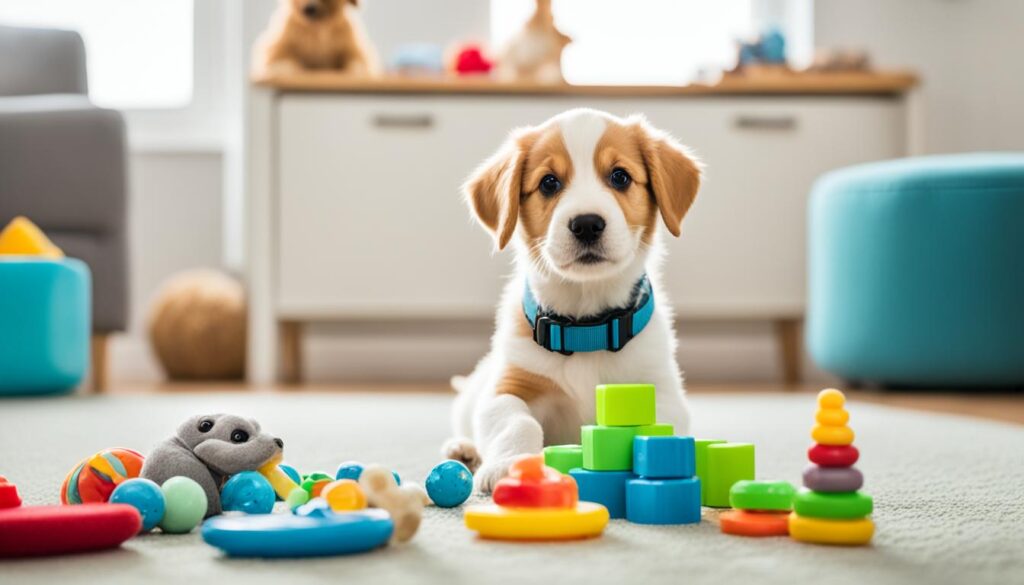Helpful Training Tips For You And Your Puppy
Published August 7, 2024 Articles

Did you know that over 70% of American households own a dog? Puppy ownership has grown a lot in recent years. These furry friends bring joy and love into our lives. But, training a new puppy can be tough. It needs patience, consistency, and the right methods.
In this guide, we’ll share helpful training tips. These tips will help you and your puppy start a rewarding journey together.
Key Takeaways
- Establish good habits and a strong bond with your puppy through early training
- Utilize positive reinforcement methods like clicker training and reward-based approaches
- Prioritize house training, crate training, and socialization for a well-behaved pup
- Incorporate puppy obedience training to teach basic commands
- Continuously reinforce good behavior and address any unwanted habits
The Importance of Early Training
As a new puppy owner, you might want to start training your pet right away. This is a great idea, as early training is key for good habits and a strong bond with your pup. Training your puppy early sets the stage for their future behavior and makes them a well-adjusted, obedient friend.
Establishing Good Habits
Puppies soak up information and habits quickly. Early training lets you teach them positive behaviors that will stick. You can teach them basic commands like sit, stay, and come, and fix issues like chewing or jumping. A consistent routine and clear rules help your puppy do well.
Building a Strong Bond
Training isn’t just about teaching commands; it’s also about making a strong connection with your pet. With positive reinforcement, patience, and regular time together, you build trust and loyalty. This bond makes your puppy more open to learning and socializing, helping them succeed.
| Benefit | Description |
|---|---|
| Establishes Good Habits | Early training helps puppies learn positive behaviors and routines that will serve them well throughout their lives. |
| Builds a Strong Bond | Positive, consistent training strengthens the bond between you and your puppy, making them more receptive to further training and socialization. |
| Prevents Behavior Problems | Addressing puppy behavior issues early on, such as chewing or jumping, can help avoid more serious problems down the line. |
Early puppy training sets your furry friend up for success. Remember, be patient and consistent. With the right approach, you and your puppy will build a strong, loving relationship that brings joy to both of you.
Training your puppy!
Training your new furry friend is both exciting and crucial for their growth. As a puppy parent, you get to teach them important skills like potty training and basic commands. With patience, consistency, and positive reinforcement, your puppy will become well-behaved and confident.
Potty Training Pointers
House-training is a key task for your puppy. Use consistent potty breaks, specific spots for them to go, and reward good behavior. Puppies have small bladders and need to go out often to prevent accidents.
Crate Training for Convenience
Crate training is a great tool for your puppy. Introduce your pup to their crate slowly, making it a cozy, safe space. It helps with potty training and stops destructive behavior when you’re not home.
Socializing for a Well-Rounded Pup
Socializing your puppy is key for their growth and behavior. Introduce them to different people, animals, and places in a positive way. This makes them confident and comfortable in the world.
Teaching Puppy Commands
Teaching your puppy basic commands like “sit,” “stay,” and “come” strengthens your bond. Use positive reinforcement to help them learn. This makes training fun and rewarding for both of you.
Every puppy is different, and their training takes time. Stay patient, consistent, and committed. You’ll be on your way to raising a well-trained, happy dog.

Positive Reinforcement Methods
Training your puppy with positive reinforcement is very effective. This method rewards your pup for good behavior, not for mistakes. It builds a strong bond between you and your puppy, making training positive and fun for both.
Clicker Training
Clicker training uses a small device that makes a “click” sound. This sound marks the exact moment your puppy does something right. When you give a treat or praise after the click, your puppy learns the behavior is rewarded.
This method is great for teaching specific commands and behaviors.
Reward-Based Approaches
Reward-based training uses treats, praise, or other rewards for good behavior. It teaches your puppy that certain actions get a reward. With high-value rewards and fun training sessions, your puppy will be more eager to learn.
This leads to faster progress and a stronger bond with your pup.
FAQ
How do I start training my new puppy?
What are the most important puppy training basics I should focus on?
How can I use positive reinforcement to train my puppy?
What are some common puppy behavior problems and how can I address them?
How important is socializing my puppy, and how do I do it effectively?
(Article Last Updated on August 11, 2024)
